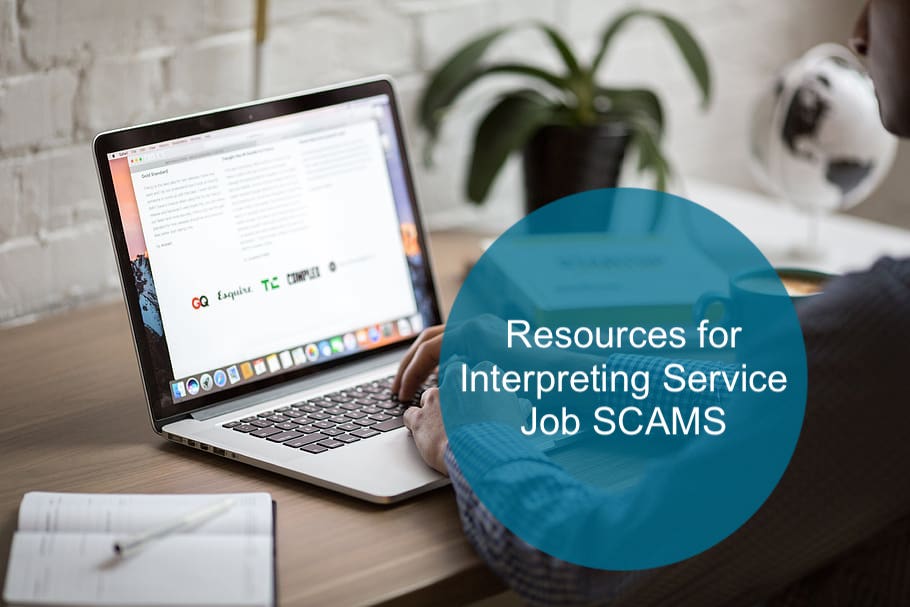Attention RID Members
As a result of COVID-19, there has been a marked increase in scam and fraud attempts perpetrated by unscrupulous actors. The scams are becoming more elaborate than ever before. As a result, it is essential to maintain heightened alert when dealing with anyone seeking your services. We have received notification from RID members alerting us to various, highly sophisticated scams involving the offer of VRI employment opportunities.
As a reminder: it is a serious diversion from standard business practices to require any semblance of fund exchange as a condition of employment.
The Federal Trade Commission (https://www.consumer.ftc.gov/
You can find additional resources below, and we encourage you to include discussion about potential employment with your trusted network of fellow interpreters. Should you be contacted about employment prospects and believe it to be a scam, please contact Members@RID.org so that we may alert the membership. Thank you! #WeAreRID
Resource Links:
American Psychology Association
Being alert, spreading the word and having a policy to double-check requests involving funds are the best ways to avoid email scams targeting the divisions.
Consumer Financial Protection Bureau
Beware of coronavirus-related scams. Scammers are taking advantage of the coronavirus pandemic to con people into giving up their money. During this time of uncertainty, knowing about possible scams is a good first step toward preventing them.
What to Do If You’ve Been a Victim of Scams or Fraud. What are your chances of getting restitution? Here’s what you need to know.
Creating a Secure Home Wireless Network
It’s critical to have a secure home wireless network. If you don’t, hackers or neighbors could land you in a world of trouble. For example, a neighbor might “borrow” your network and commit a crime that the authorities trace to you. Similarly, hackers could infiltrate your network and conduct identity theft, malware and data breach campaigns.
Federal Trade Commission: Place a Fraud Alert
A fraud alert can make it harder for an identity thief to open more accounts in your name. You can place a fraud alert by asking one of the three nationwide credit bureaus. It has to put the alert on your credit report and tell the other two credit bureaus to do so. The alert lasts one year.
Federal Trade Commission: Consumer Protection
Various FTC resources for you including: frequently asked questions, reporting identity theft, applying for a refund in an FTC case, credit reports and more.
United States Department of Justice
Resources for fraud crime, dealing with the emotional impact of fraud victimization, general information and questions answered about fraud victimization.
United States Government Services
Reporting scams and frauds to your local government and the federal government. Scams may include, but not limited to, disaster and emergency scams received in the form of phone calls, emails, computer support scams, fake checks, student loans etc.

